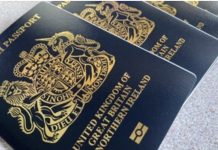Traveling to Europe is an exciting undertaking that will open your eyes to the world around you. However, before you embark on this adventure, it is crucial that you understand what to bring, what to expect in customs, and what your EU flight delay rights entail in the event of a cancellation or significant delay. Here are four things to keep in mind when traveling to Europe.
Book Your Trip Early:
When it comes to European travel, it pays to book your travel early, both literally and figuratively. Unlike the purchase of domestic flights when you can often score last-minute deals, you will likely save the most money on your flight to Europe if you book well in advance. In addition, you will also get your first choice of seats the earlier that you book. While seat selection may not be important for short-haul flights, you definitely want to do what you can to secure the most comfortable seating arrangement for an overnight flight.
What to Bring Along?
Before you board a long flight, you want to be sure that you have everything that you need for a comfortable and convenient trip across the ocean. Be sure to dress in comfortable clothing. Layers are particularly helpful on airplanes where you do not have control over the cabin temperature. A travel pillow is also an invaluable essential to pack in your carry-on bag. Shoes that you can slip off and on easily will be appreciated at security and also while in flight. Other essentials include snacks, bottled water, and plenty of entertainment options. You may also find a natural sleep aid such as melatonin helpful.
What Happens in Customs?
You must pass through the customs check before leaving the airport after you arrive at your final destination. You will also pass through the customs and immigration booth when returning home. You will be asked a variety of questions to verify the intentions of your trip when you arrive in Europe. Upon returning home, you will be asked about any purchases that you are bringing back. Depending on the value of the items that you purchase, you may be required to pay an additional customs duty.
What to Do if Your Flight is Cancelled or Delayed?
The most important thing is to inform yourself so that you unequivocally know your EU flight delay rights. This knowledge will help you to protect yourself and your pocketbook. The steps that you take depend on if the flight was cancelled, delayed, or for reasons such as missing a connection or being denied boarding. Any compensation is due in part to the EU 261. According to Travel Refund, “it was intended to create a system of accessible compensation for flight delays or cancellations, and it continues to keep airlines honest.” You should also know the steps to take should the airline lose or damage your luggage. All of these events fall under the umbrella of EU flight delay rights.
While you can never guarantee that you will have a seamless travel experience, knowing the smart way to travel to Europe will help to guard against a variety of events that may thwart your trip.







